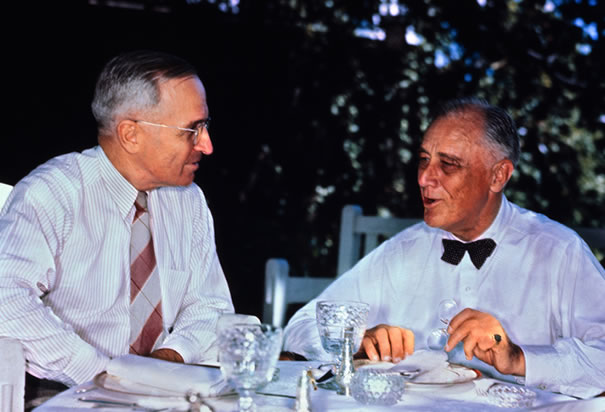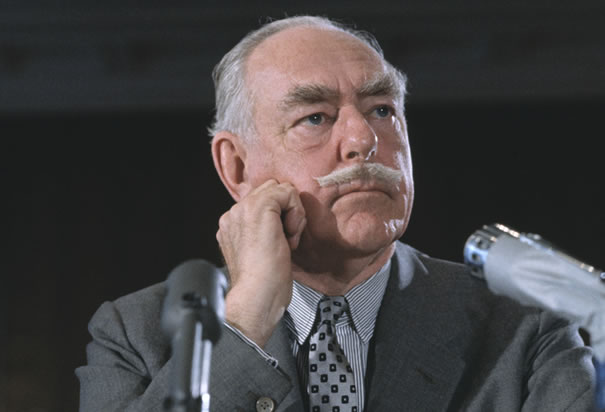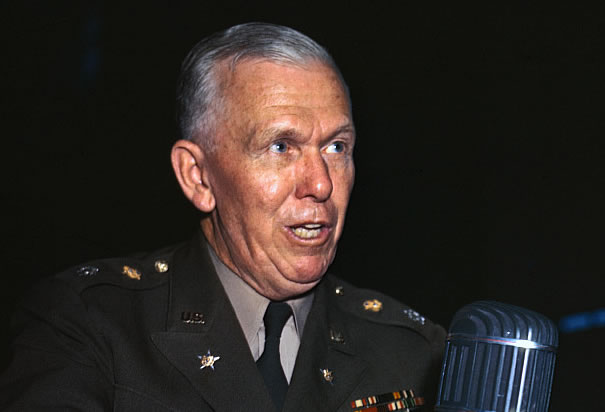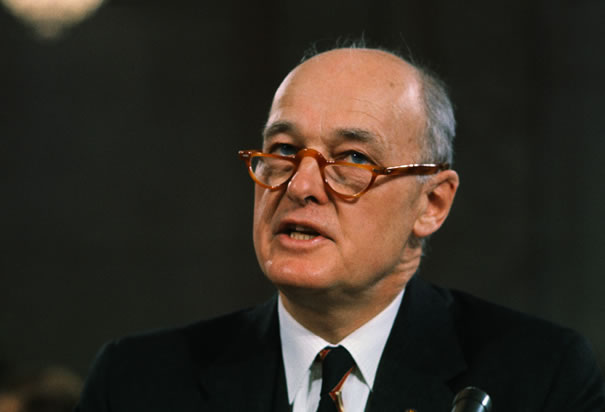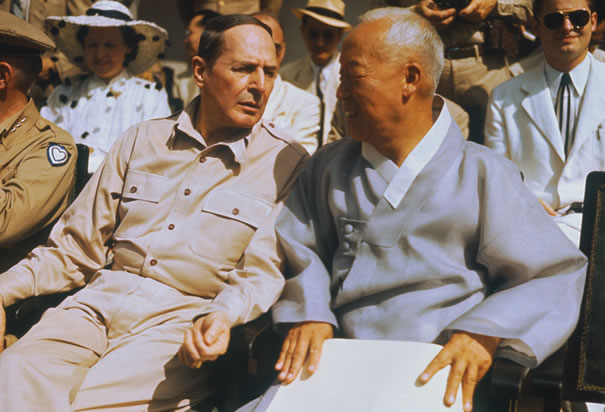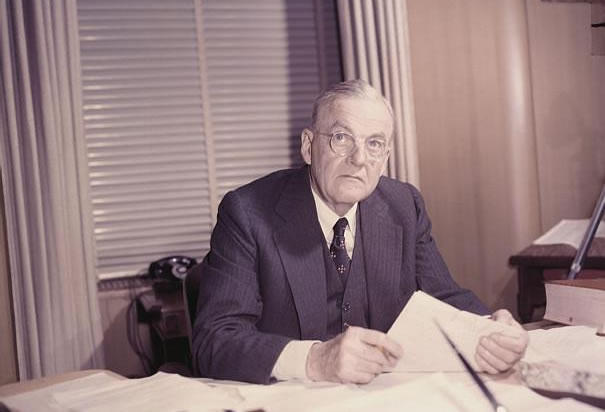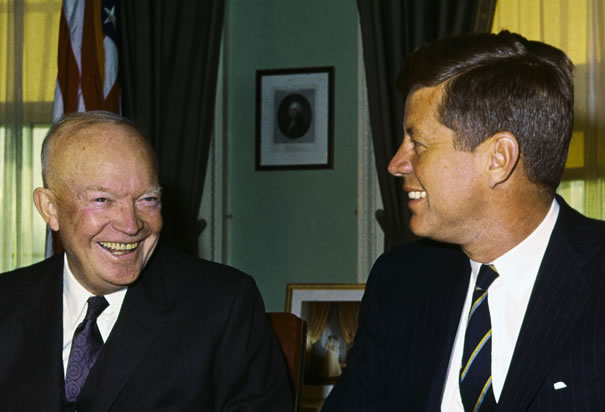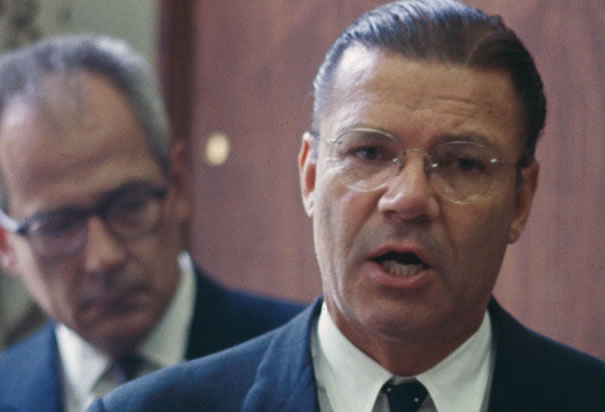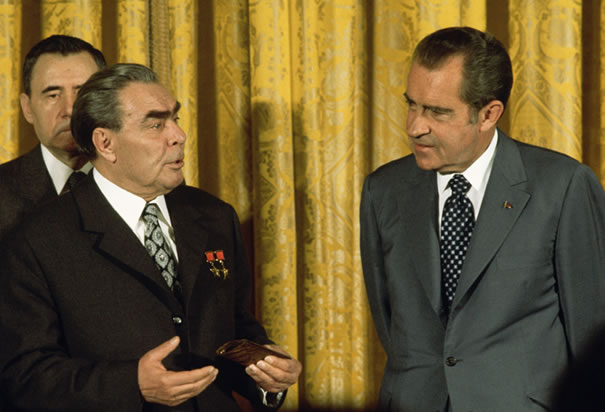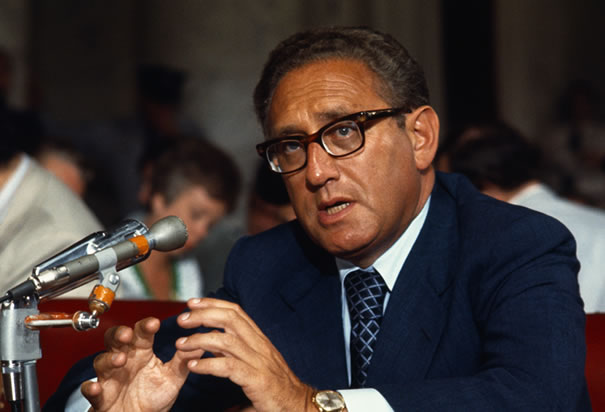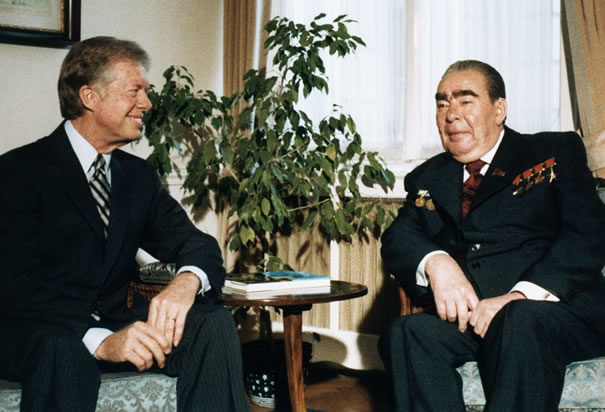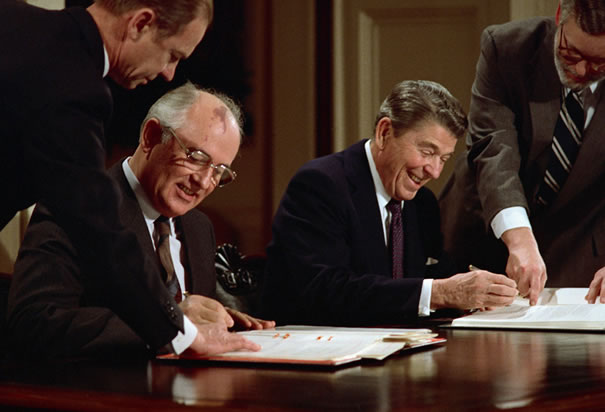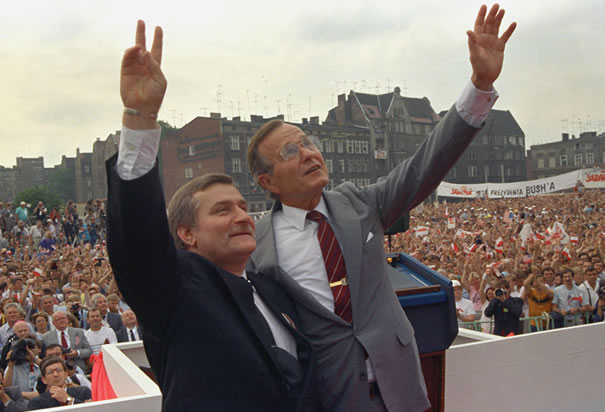냉전시대(Cold War era)의 주역들
fabiano
History & Photo
0
1309
2012.05.04 14:19
냉전이라는 용어는 미국의 평론가 W.리프먼이 저술한 <냉전 The Cold War>(1947)이라는 논문에서 비롯되었고,
미국의 재정전문가이며 대통령의 고문이었던 버나드 바루크가 1947년 의회토론에서 이 용어를 처음 사용하였다.
제2차 세계대전 막바지인 1945년 5월 나치 독일이 항복하자 미 ·영 양국과 소련 사이의
불안정한 전시동맹관계는 해체되기 시작하였다.
1948년까지 소련은 동유럽 제국에 좌익정부를 건설하였으며, 미국과 영국은 독일 내
양국 점령지구의 대소(對蘇) 배상을 중단하는 것으로 이에 대응하였다.
Franklin D. Roosevelt and Harry Truman:
Harry Truman had only been vice president for three months before assuming the presidency.
During his nearly eight years in office, he attempted to contain the spread of communism
as the Cold War heated up.
Dean Acheson:
Acheson played a central role in defining American foreign policy during the Cold War.
As Truman's secretary of state, he encouraged U.S. involvement in the Korean War.
In the 1960s, he counseled John F. Kennedy and Lyndon Johnson on the Cuban Missile Crisis and Vietnam.
In the 1960s, he counseled John F. Kennedy and Lyndon Johnson on the Cuban Missile Crisis and Vietnam.
George C. Marshall:
General George Marshall oversaw the Allied victory in World War II before serving as
General George Marshall oversaw the Allied victory in World War II before serving as
both secretary of state and secretary of defense.
He was instrumental in developing the "Marshall Plan," aimed at rebuilding postwar
Europe, stabilizing the region and preventing the spread of communism.
George F. Kennan:
In the 1940s, George Kennan developed the "containment†strategy to isolate
In the 1940s, George Kennan developed the "containment†strategy to isolate
the Soviet Union and limit the spread of communism.
Containment would become the prevailing American foreign policy for decades, influencing
U.S. involvement in Korea, Vietnam and Eastern Europe.
U.S. involvement in Korea, Vietnam and Eastern Europe.
General MacArthur and South Korean President Syngman Rhee:
After a successful military career in both World Wars, Gen. Douglas MacArthur commanded
U.N. forces during the Korean War until his controversial dismissal
After a successful military career in both World Wars, Gen. Douglas MacArthur commanded
U.N. forces during the Korean War until his controversial dismissal
by President Harry S. Truman in April 1951.
John Foster Dulles:
As President Eisenhower's secretary of state, John Foster Dulles developed an aggressive policy
towards the Soviet Union, which included expanding American alliances in Europe and
towards the Soviet Union, which included expanding American alliances in Europe and
Southeast Asia and supporting U.S. actions to overthrow leftist governments in Iran and Guatemala.
Presidents Eisenhower and Kennedy:
Conceived by the Eisenhower Administration and carried out by the Kennedy
White House, the failed 1961 invasion of Cuba's Bay of Pigs heightened
White House, the failed 1961 invasion of Cuba's Bay of Pigs heightened
U.S.-Soviet tensions and contributed to the Cuban Missile Crisis the following year.
Robert S. McNamara:
Robert McNamara served eight years as secretary of defense to Presidents Kennedy and Lyndon B. Johnson.
He was a key architect and supporter of U.S. strategy in Vietnam, though he would later admit the policy's failures.
He was a key architect and supporter of U.S. strategy in Vietnam, though he would later admit the policy's failures.
Nixon Visits USSR:
In 1972, Richard Nixon travelled to the Soviet Union to meet with Soviet leader Leonid Brezhnev.
The meeting resulted in two landmark weapons treaties and eased tensions, ushering
The meeting resulted in two landmark weapons treaties and eased tensions, ushering
in a new policy known as détente.
Henry Kissinger:
National security advisor and secretary of state to Presidents Nixon and Ford, Kissinger helped ease relations with the Soviet Union and China, and negotiated an end to the Vietnam War.
He remains a controversial figure for his role in American actions in Cambodia, Latin America and elsewhere.
Brezhnev and Carter at SALT II Talks:
Soviet President Leonid Brezhnev and President Jimmy Carter meet in Vienna
to negotiate the strategic arms limitation treaty (SALT II) on June 18, 1979.
Gorbachev and Reagan Sign INF pact:
In the 1980s, President Ronald Reagan and Soviet Premier Mikhail Gorbachev worked together
to diffuse U.S.-Soviet tensions, and lay the groundwork for the end of the Cold War.
George Bush and Lech Walesa:
President George H.W. Bush's decades of foreign policy experience made him uniquely
suited to oversee the U.S. reaction to the fall of the Soviet Union and the end of the Cold War.
suited to oversee the U.S. reaction to the fall of the Soviet Union and the end of the Cold War.
